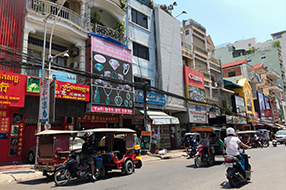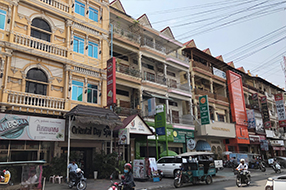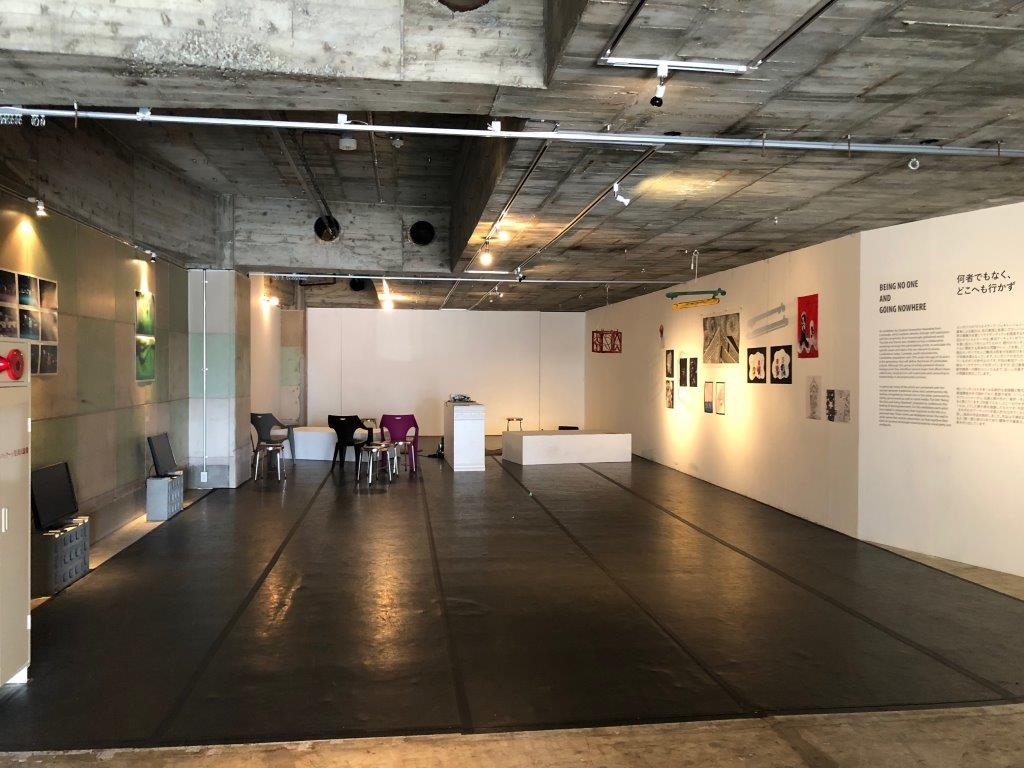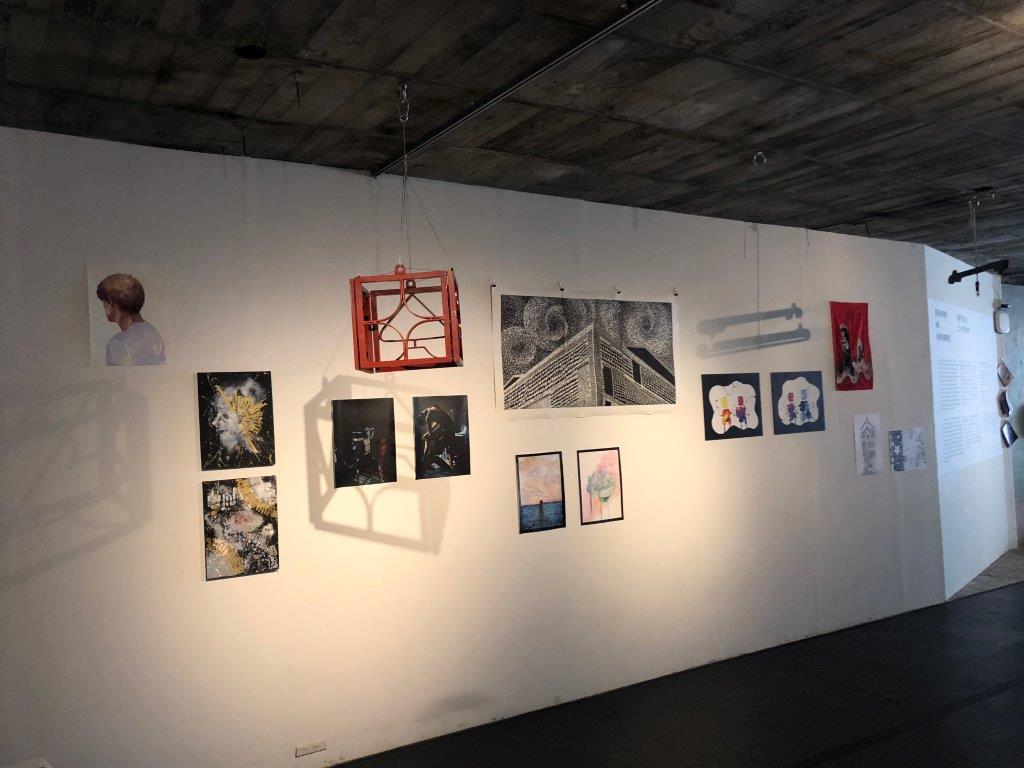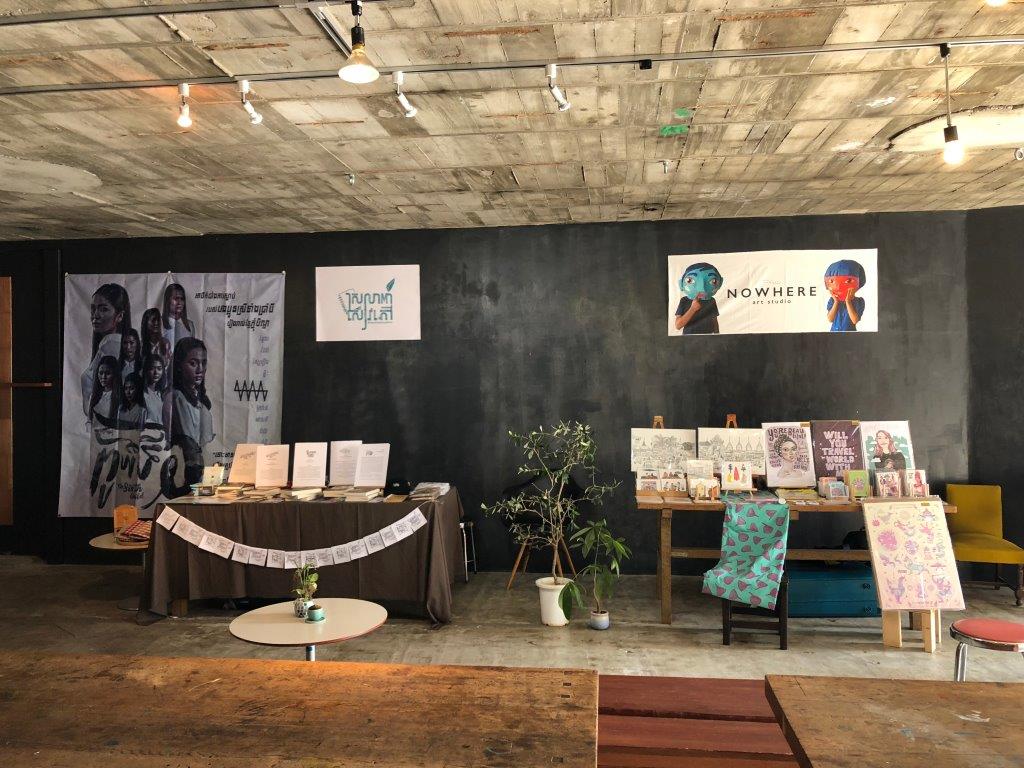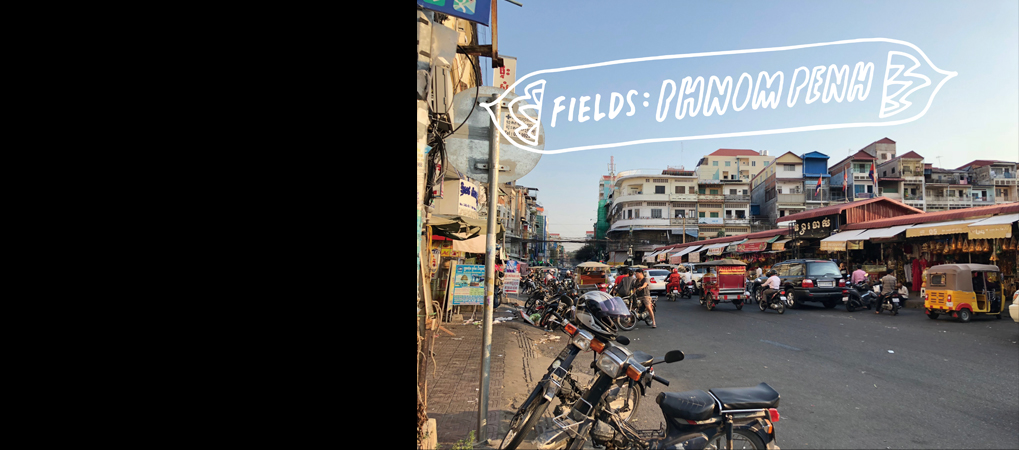
Asia Series Vol.5: Trans-fields
Fields: Phnom Penh
- Experience the Phnom Penh art scene
Phnom Penh is a culturally rich city in which artists of many disciplines and nationalities live. This series of events introduces the city’s diverse scene through exhibits of various artists’ work and screenings of locally shot films, along with talks with Japanese artists and more. In this way, the program encourages audiences to consider the contrasting “fields” of Phnom Penh and Tokyo in the context of art as well as, more broadly, their cultural and social differences.
Information
| Venue | BUoY Arts Center Tokyo |
|---|---|
| Dates |
11/10 (Sat) 14:00–21:30 Admission at any time |
| Language | English and Khmer with consecutive Japanese interpretation |
| Tickets | ¥500 (no reservation required) |
Timetable
| 14:30–16:00 | Manith Trans-language and Writing Novels Musician and writer Manith discusses writing novels in Khmer and opening up a bookstore for Khmer-language publications, against a backdrop of the rapid proliferation of English in Cambodia. |
|---|---|
| 16:30–18:00 | Nowhere Art Studio Trans-place: Possessing a New Base Nowhere is led by the artists Lolli Park and Syahrulfikri Salleh, who both left their respective home countries to run the art studio in Phnom Penh. In this talk, they introduce their border-crossing work that connects with local communities and issues through art, and also the uniquely Phnom Penh style that allows the local and international to coexist. |
| 18:30–20:30 | Documentary Screening & Talk: Tokyo 2018 Phnom Penh Tatsuhito Utagawa, Riku Yamakawa A screening of a new documentary made by the director Tatsuhito Utagawa, exploring the two fields of Tokyo and Phnom Penh. The screening is followed by a talk with the director and Riku Yamakawa, who conducted research with Utagawa and also designed the venue, about the film and their research. |
| 14:15–15:30 | Documentary Screening: Tokyo 2018 Phnom Penh A screening of a new documentary made by the director Tatsuhito Utagawa, exploring the two fields of Tokyo and Phnom Penh. |
|---|---|
| 16:00–17:30 | Dana Langlois Trans-generations: Encounters with Future Artists A talk by Phnom Penh-based curator Dana Langlois, who has wide experience working with local artists, introducing her activities and the Phnom Penh arts scene. |
Artist Interviews
- Interviews recorded in Phnom Penh with artists participating in the program.
- Nowhere Art Studio
- Manith (novelist)
- Rady Nget (dancer)
- Sa Sa Art Projects
- Dana Langlois (art curator)
- Lomorpich Rithy (Producer, BonnPhum)
Artist Profiles
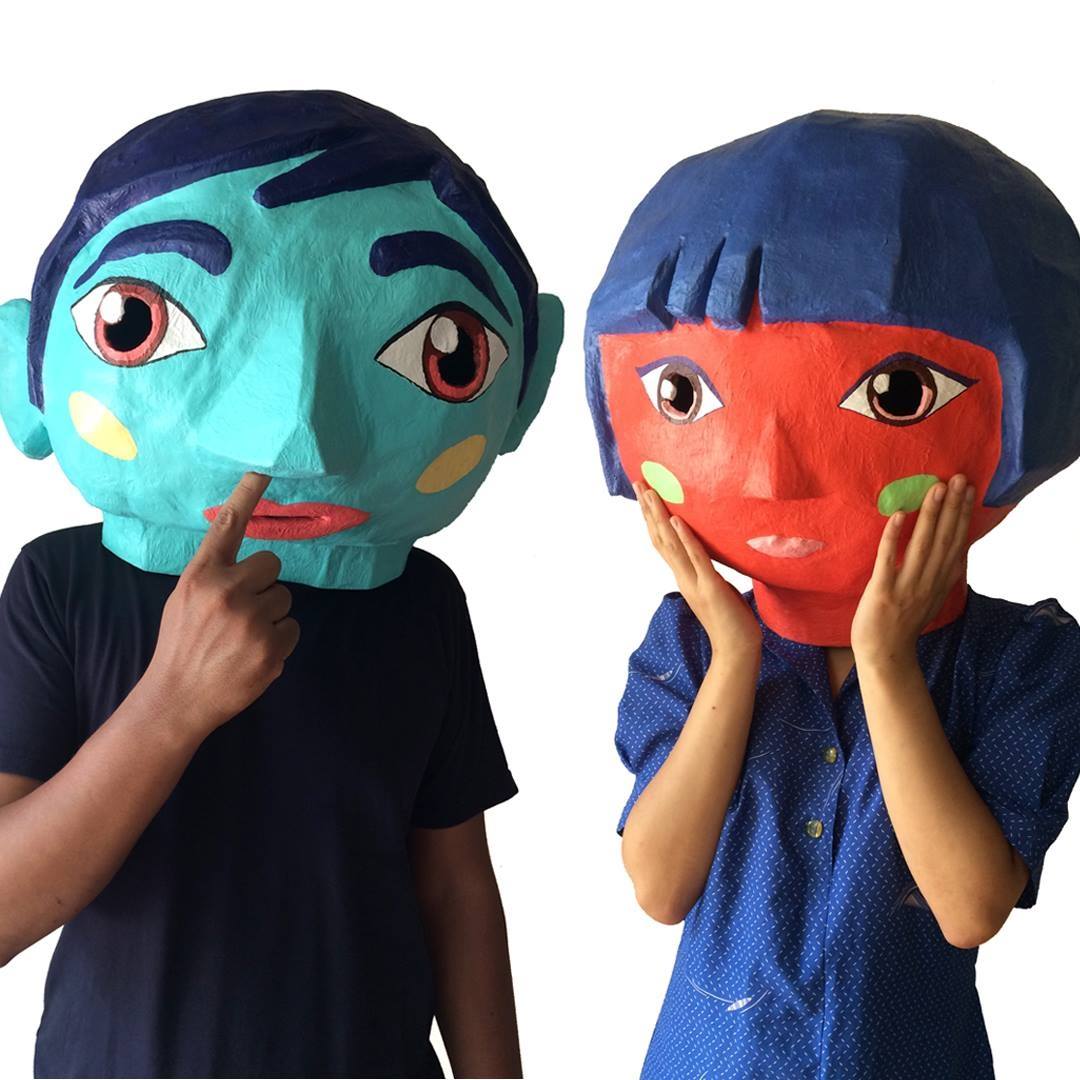
-
Nowhere Art Studio
Nowhere Art Studio is an independent art studio for learning, collaborating, and inspiring in Phnom Penh, Cambodia, led by artists Lolli Park (South Korea) and Syahrulfikri Salleh (Malaysia). Besides organizing creative art workshops, talks, screening, and social art projects, the art studio provides artistic services on demand for individuals, small businesses, and corporations.
Lolli Park
Born in 1983, Lolli Park is a self-taught artist from South Korea. She worked in the fashion industry then quit her job in 2013 to focus on her personal art. She loves creating quirky illustrations, pattern designs, and hand-carved block prints. She has traveled widely, lived in Vietnam for two years, and is inspired by nature, motifs and daily life.Syahrulfikri Salleh (Ajin)
Born in 1977, Syahrulfikri Salleh (Ajin) studied graphic design at Universiti Teknologi MARA, Malaysia. He has been involved in the creative industry since 2000 and has exhibited his work in numerous local and international venues. In 2013, he quit his job as a typography and graphic design lecturer to pursue his dream of traveling the world and making art. After two years of traveling by land from Kuala Lumpur to Spain, he accepted a job offer at an award-winning advertising agency in Phnom Penh. Syahrulfikri’s work mainly focuses on learning, sharing, and collaborating. Currently, he's the co-founder of Nowhere Art Studio.
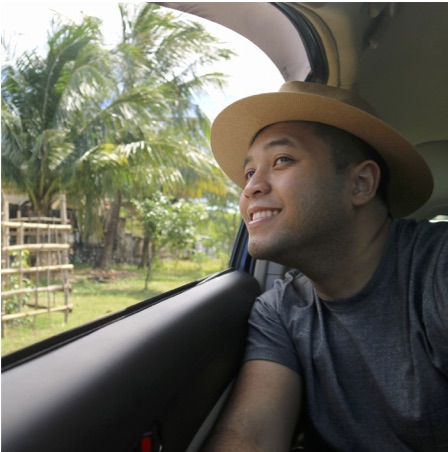
-
Manith
Manith is a musician with a strong fan base among Cambodians in their twenties. Making his debut as a singer-songwriter in 2012, he has built up a popular following by presenting his work not only on radio but also social media. His original music is said to empower the young generation of Camodia. In March 2016, he published his first novel as part of the SlanhSeavphov (Love Book) project. It sold 7,000 copies in its first year. He then published a follow-up in 2017, which sold 4,500 copies in four months. Part of the sales was donated to children’s hospitals in Cambodia.
Official YouTube channel
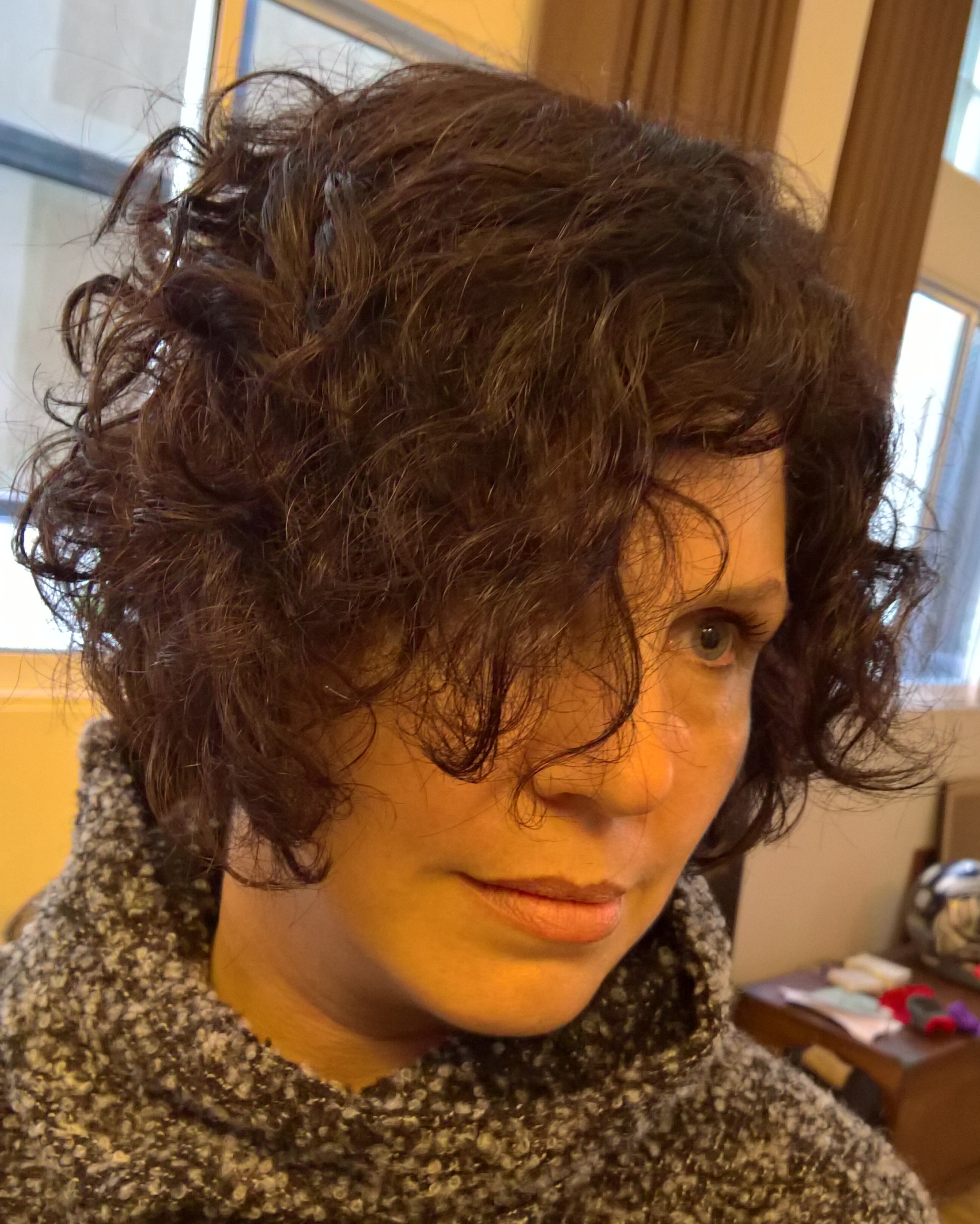
-
Dana Langlois
Dana Langlois is an artistic director and curator who has for more than 18 years been actively involved in curating, researching, and producing contemporary art programs in Cambodia. Her work focuses on artistic practices in the here and now. She is interested in the dynamics of constant change, process, and inter-relationships in the context of the arts. Since 2000, she has been working with Cambodian and diaspora artists in a time of intense creativity and reconstruction that followed the tragic destruction of the country’s cultural identity. She has produced hundreds of exhibitions and launched well-known artists through the JavaArts platform, which was established in 2000. From 2008 until 2014 she founded and directed Our City Festival, a nationwide art and urbanism festival. Prior to that she ran Sala Artspace (2006–7), an experimental gallery and studio, in collaboration with artist Pich Sopheap. Her work with artists has been shown and collected at established museums and galleries in Singapore, France, Australia, and the United States. She is currently the artistic director of Counterspace (established 2018), Creative Generation (2017), and Java Creative Café (JavaArts) (2000).
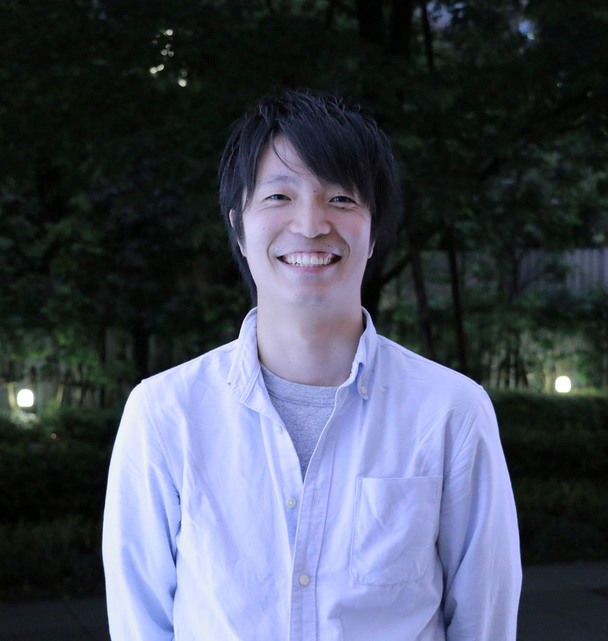
-
Tatsuhito Utagawa
Born in 1990 in Tokyo, Tatsuhito Utagawa is a documentary filmmaker. He graduated from the School of Image Arts at Ritsumeikan University. He spent six months in Cambodia making “Cambodian Textiles,” which was selected for screening at Cambodia International Film Festival 2018 and the Beyond The Borders – International Documentary Festival 2018 in Greece. He is currently making a documentary about Thai monks. He is also involved with film and art management, coordinating symposia and film screenings. He worked for the New Asian Currents Films program at Yamagata International Documentary Film Festival 2013 and 2015.
“Cambodian Textiles” trailer
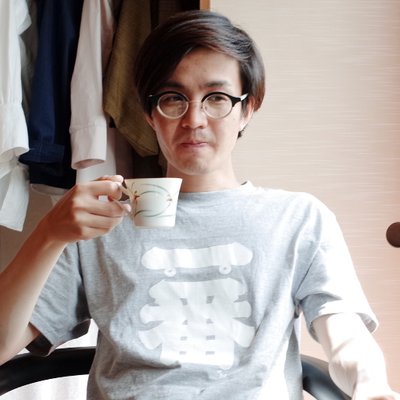
-
Riku Yamakawa
Born in 1990, Riku Yamakawa is an architect and graduate of Tokyo University of the Arts. After time working for architect Junpei Matsushima’s office from 2013 to 2015, he became a research assistant at the Faculty of Art at Tokyo University of the Arts. Since 2010, he has worked under the name Guri Archi. His recent credits include Object Disco (2016 and ongoing), spatial design for WWFes2018, and stage design for a performance by Shinbunka in 2018. His interests lie in how architecture is interpreted and received, working to verify these questions of readability within his design projects. He is also involved with the nonprofits Moku-Chin Architecture and Arima no Mura.
Moderator Profiles
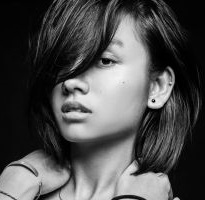
-
Lomorpich Rithy
Lomorpich Rithy (aka YoKi Cöcö) is an independent filmmaker and cultural innovator who graduated with a degree in media communication from the Royal University of Phnom Penh. Following time as a director, producer, and writer at BBC Media Action Cambodia, she founded PlerngKob (“campfire”) in 2014. It organizes BonnPhum, a “village festival” that connects the lost traditions of Cambodia with the present. Held in the village of Kandal, 10km south of Phnom Penh, the fifth edition that was held this year attracted around 140,000 people over three days. Lomorpich Rithy believes in the power of storytelling and the arts to inspire and unite people. She has engaged many young arts enthusiasts to work with her on BonnPhum to create and stimulate vibrant cultural and economic activities in Kandal.
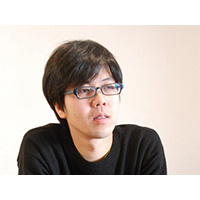
-
Nozomu Ogawa (Director, Art Center Ongoing / Director, TERATOTERA)
Born in 1976 in Kagurazaka, Tokyo, Nozomu Ogawa graduated from Musashino Art University in 2001. He completed a doctoral program at the Interfaculty Initiative in Information Studies in the Graduate School of Interdisciplinary Information Studies, University of Tokyo, in 2004. Between 2002 and 2006, he held the large-scale open-call exhibition “Ongoing” once a year. Based on that artist network this project built up through its original open-call system, he then established Art Center Ongoing in Kichijoji in 2008. He is currently the director of the center. He also serves as chief director of the art project TERATOTERA, which is based between the JR Chuo Line stations of Koenji and Kokubunji.
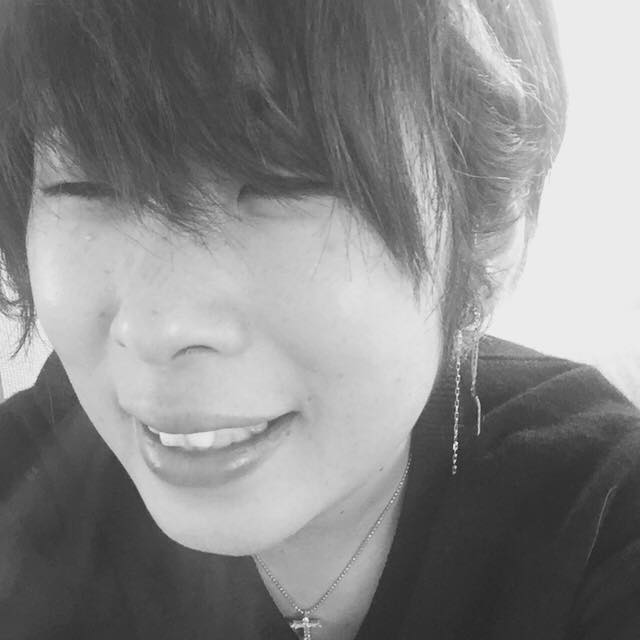
-
Haruka Iharada
Born in 1991 in Okinawa, Haruka Iharada is an independent curator. With a focus on activism and alternative culture, she organizes, curates, and coordinates visual art, video, and film screening events, exhibitions, and projects related to Asia and Okinawa. She currently works at Tokyo University of the Arts coordinating international initiatives with other ASEAN countries. Her major past projects include co-directing the film “Constellation” (2015) with Keijiro Nakamori, curating the exhibition “The more beautiful it becomes” (Maruki Gallery, Saitama, 2017), and serving as pavilion director for “Barrak: survives” (Bangkok Biennial 2018).
Videos
Cast & Creative
| Talk Guests: | Ajin, Lolli (Nowhere Art Studio), Manith, Dana Langlois |
|---|---|
| Talk Moderators: | Nozomi Ogawa, Lomorpich Rithy, Haruka Iharada |
| Venue Design, Research: | Riku Yamakawa |
| Video Production, Research: | Tatsuhito Utagawa |
| Map Guide Editing: | Hinako Izuhara |
| Map Guide Design: | Tézzo Suzuki |
| Production Coordinator, Research: | Yuko Takeda (Festival/Tokyo) |
| Production Coordinator: | Mayuko Arakawa (Festival/Tokyo) |
| In cooperation with | Hitomi Nomoto |
| Interns: | Natsu Kimura, Risa Matsumoto, Hinako Miyamoto, Reina Maeda |
| Planned and presented by | Festival/Tokyo |
| Co-organized by | the Japan Foundation Asia Center |
 |
Venue
BUoY Arts Center Tokyo
- 49-11 Senjunakacho, Adachi-ku, Tokyo
- 6 minutes’ walk from Exit 1 of Kita-Senju Station on the Tokyo Metro and 8 minutes’ walk from Kita-Senju Station on the JR Joban Line. 7 minutes’ walk from Senjuohashi Station on the Keisei Main Line.
